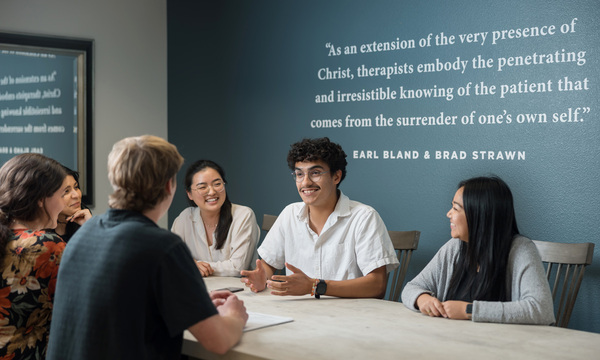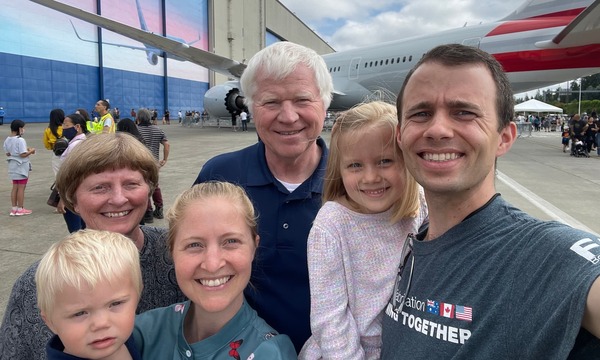Writer and editor Gregory Wolfe opened the 2013 Biola Media Conference Saturday, May 4, by pushing back on modern “monoculture” mentality - one that leans heavily towards utilitarianism and the belief that no form of art is really greater than another. However, Wolfe, who has spent 25 years talking about faith and the arts, said the real divide in today’s culture is “between those who want to defend the humanity of man and those who want to give them up to utilitarianism.”
Wolfe emphasized a return to true humanity, in constant dialogue with religion, claiming it as the proper way to approach art.
“Great art is a journey that the viewer takes with us,” said Wolfe. “Great art transcends communication and becomes communion.”
According to Wolfe, good literature and movies have great potential in what they can teach, and good art demands something out of the person receiving it. If done correctly, it “can let truth in the back door.”
This year’s conference, hosted at CBS Studios, attracted about 400 attendees.
Speaking on a panel, filmmakers Destin Daniel Cretton and Ryan Coogler discussed their experiences as young, successful artists. Regarding filmmaking, Coogler emphasized that “human beings recognize honesty,” and said that every story he’s made “has been about a story [he’s] wanted to tell but also something that terrified [him].”
Both Coogler and Cretton encouraged filmmakers to stay true to yourself and your interests while navigating the film industry.
Throughout the afternoon, attendees had the opportunity to choose from breakout sessions addressing various topics such as finding your voice as a director and writing award winning screenplays.
Walt Disney’s Armand Serrano and Sony’s Rob Bredow, who have worked on popular films such as “Surfs Up,” “Cloudy with a Chance of Meatballs” and “Stuart Little,” gave advice on how to best prepare your portfolio for special effects and animation. Biola alumni Trenton Waterson, Boye Fajinmi and Steven Haddadian led a workshop on networking.
Fajinmi encouraged aspiring artists to “identify your passions and be innovative with those,” and Haddadian said that “everyone should be storytellers, whatever you do.”
Jason Mellerstig, who’s attended the past four to five conferences, enjoyed this year’s conference, calling it “a good encouragement that kindles the flame of inspiration for young filmmakers.”
This year’s Biola Media award was presented to David McFadzean, a Christian producer, writer, film producer and playwright, best known for co-creating the 1990s sitcom “Home Improvement.”
Fadzean emphasized his desire to bridge generations, by passing on the wisdom and experience of his generation to the next generation of filmmakers.
“We need entertaining movies that show the way the world really is,” he said.
Pixar’s Pete Docter, director of popular movies such as “UP” and “Monster’s Inc.,” was awarded the Best Director’s Award. Docter was unable to attend the conference in person, but addressed the audience in a video message.
Bishop Kenneth Ulmer of Faithful Central Bible Church closed the conference with a message that compared ministry to “being on a stage.” Ulmer explained that Christians should think of themselves as “servants and stewards in a divine drama.”
Past speakers at the Biola Media Conference include actor Sean Astin and producer DeVon Franklin. Learn more about Biola’s Cinema & Media Arts department.
Written by Carissa Lehmkuhl, Media Relations Intern. For more information, contact Jenna Bartlo, Media Relations Specialist, at 562.777.4061 or jenna.l.bartlo@biola.edu.
 Biola University
Biola University


.jpg)